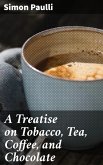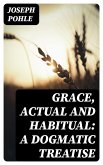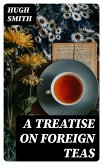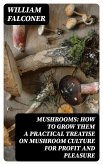Simon Paulli's 'A Treatise on Tobacco, Tea, Coffee, and Chocolate' serves as a pioneering text in the study of these widely consumed substances, casting light upon their twin faces of benefit and detriment. Through a balanced discourse that appeals to medicine and chemistry, Paulli's meticulous approach is steeped in both empirical observation and analytical rigor. His literary style is deeply expository, yet accessible, situating his work within the broader context of 17th-century scientific exploration. Essential to understanding the evolving dialogue around consumables, Paulli's work interrogates the impact of these items on the general populace, thereby giving historical depth to their cultural and physiological implications. His comparative analysis of Asiatic and European botanical elements showcases the exhaustive nature of his research and highlights the era's zeal for botanical discovery. Simon Paulli, a Danish physician and botanist, was known for his contributions to the scientific community of his time. His vested interest in delineating the properties of widely used substances is underscored by his career-long commitment to the relationship between natural products and health. It is within this vein that Paulli crafted his treatise, marrying his practical experiences and scientific observations to create a work that was forward-thinking for its time. His dedication to providing a comprehensive understanding of tobacco, tea, coffee, and chocolate speaks to his belief in the importance of informed consumption and its effects on human wellbeing. To scholars and enthusiasts of medical history, botany, and the cultural studies alike, 'A Treatise on Tobacco, Tea, Coffee, and Chocolate' remains a seminal work deserving a place on their bookshelves. Paulli's treatise not only educates on the historical uses and beliefs surrounding these commodities but also serves as a timeless reflection on our ongoing dialogue with the things we consume. Recommending this book is to invite the reader on a journey through time, exploring the origins of common indulgences and laying the groundwork for modern discussions on the relationship between diet, health, and lifestyle.
Dieser Download kann aus rechtlichen Gründen nur mit Rechnungsadresse in A, B, BG, CY, CZ, D, DK, EW, E, FIN, F, GR, H, IRL, I, LT, L, LR, M, NL, PL, P, R, S, SLO, SK ausgeliefert werden.









